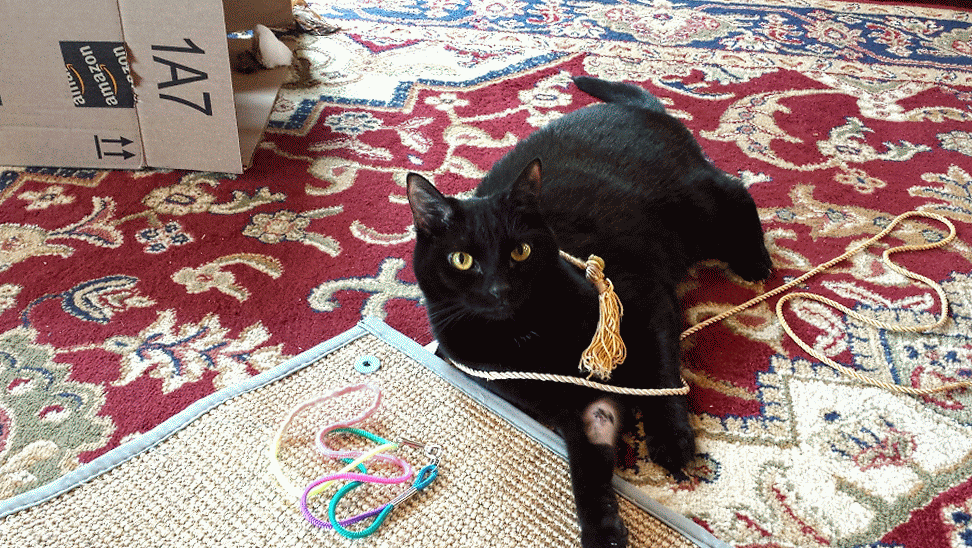I was reminded recently of an interesting article from the June 1995 issue of Wired magazine. I subscribed to Wired back then: this was during the early days of the internet, while the 1990s tech bubble was inflating like gangbusters. The article is “The Curse of Xanadu“, by Gary Wolf.
It was the most radical computer dream of the hacker era. Ted Nelson’s Xanadu project was supposed to be the universal, democratic hypertext library that would help human life evolve into an entirely new form. Instead, it sucked Nelson and his intrepid band of true believers into what became the longest-running vaporware project in the history of computing – a 30-year saga of rabid prototyping and heart-slashing despair. The amazing epic tragedy.
The article begins with a brief description of the mind behind Xanadu, Ted Nelson. He is described as a very smart man with many ideas, but who has difficulty finishing his projects. Later in the article, we learn that Nelson has an extreme case of Attention Deficit Disorder.
The article then goes on to describe the goals of the Xanada project, which Nelson began working on in 1965:
Xanadu was meant to be a universal library, a worldwide hypertext publishing tool, a system to resolve copyright disputes, and a meritocratic forum for discussion and debate. By putting all information within reach of all people, Xanadu was meant to eliminate scientific ignorance and cure political misunderstandings. And, on the very hackerish assumption that global catastrophes are caused by ignorance, stupidity, and communication failures, Xanadu was supposed to save the world.
Yet Nelson, who invented the concept of hypertext, is not a programmer. He is a visionary. He is also appearently immensely persuasive. He convinced people to spend millions of dollars on Xanada (long before the tech bubble made that irrational behaviour seem normal), and years working on it. And it does seem that Nelson was a true visionary. In 1969, he already foresaw that technology would “overthrow” conventional publishing, and that paper would be replaced by the screen (in his mind, it already had). But he was limited by the technology of his day. “Even [in 1995], the technology to implement a worldwide Xanadu network does not exist.” In the 1970s, “[the] notion of a worldwide network of billions of quickly accessible and interlinked documents was absurd, and only Nelson’s ignorance of advanced software permitted him to pursue this fantasy.”
In the early 1970s, Nelson worked with a group of young hackers called the RESISTORS, in addition to a couple of programmers he had hired. During this period, the first real work on Xanadu was accomplished: a file access invention called the “enfilade”. What the enfilade is or exactly what it does is a mystery: unlike another famous iconoclast, Richard Stallman, Ted Nelson did not believe that “information wants to be free”. The nature of Xanadu’s enflilade, what it does, and how it is implemented is a mystery: everyone who has worked on the project has been sworn to secrecy.
In 1974, Nelson met programmer and hacker Roger Gregory. According to the article, if Nelson is the father of Xanadu, Roger Gregory is its mother. “Gregory had exactly the skills Nelson lacked: an intimate knowledge of hardware, a good amount of programming talent, and an obsessive interest in making machines work. […] through all the project’s painful deaths and rebirths, Gregory’s commitment to Nelson’s dream of a universal hypertext library never waned.” Gregory’s tale is a sad one: it’s difficult to see his involvement in Xanadu as anything other than a tragic waste of his life.
As the years go by and the 1970s become the 1980s, Nelson continued to work on Xanadu, and Xanadu continued not to be completed. By the late 1980s, the project team had dwindled and support for it was difficult to find. Nelson and Gregory would not admit failure, although Gregory struggled with thoughts of suicide. However, in 1988 Xanadu was rescued by John Walker, the founder of Autodesk. It seemed that Xanadu would at last have the benefit of serious commercial development. “In 1964,” Walker said in a 1988 press release, “Xanadu was a dream in a single mind. In 1980, it was the shared goal of a small group of brilliant technologists. By 1989, it will be a product. And by 1995, it will begin to change the world.”
It turned out that was easier said than done.
I find it interesting that one of the technical obstacles to Xanadu’s development was due to its profoundly non-free approach to the information it would make available.
The key to the Xanadu copyright and royalty scheme was that literal copying was forbidden in the Xanadu system. When a user wanted to quote a portion of document, that portion was transcluded. With fee for every reading.
Transclusion was extremely challenging to the programmers, for it meant that there could be no redundancy in the grand Xanadu library. Every text could exist only as an original.
In my opinion, this philosophy of restricting information is a key reason that Xanadu failed.
By the early 1990’s, control of the project shifted away from Gregory and the original development team, and all of the existing code was discarded. This also made Walker’s 18-month timeline explicitly unattainable.
John Walker, in retrospect, blames the failure of Xanadu on the unrealistic goals of the (new) development team.
John Walker, Xanadu’s most powerful protector, later wrote that during the Autodesk years, the Xanadu team had “hyper-warped into the techno-hubris zone.” Walker marveled at the programmers’ apparent belief that they could create “in its entirety, a system that can store all the information in every form, present and future, for quadrillions of individuals over billions of years.” Rather than push their product into the marketplace quickly, where it could compete, adapt, or die, the Xanadu programmers intended to produce their revolution ab initio.
“When this process fails,” wrote Walker in his collection of documents from and about Autodesk, “and it always does, that doesn’t seem to weaken the belief in a design process which, in reality, is as bogus as astrology. It’s always a bad manager, problems with tools, etc. – precisely the unpredictable factors which make a priori design impossible in the first place.”
In 1992, just before the release of Mosaic and the popularization of the World Wide Web, Autodesk crashed and burned, and the pipeline of funding that kept the Xanadu project going came to an end. Ownership of Xanadu reverted to Ted Nelson, Roger Gregory, and a few other long-time supporters.
A glint of hope appeared. Kinko’s (remember Kinko’s?) was interested in funding the project for their own use. But Nelson chose this time to attempt to seize control of the project. The programmers who had been subjected to Nelson’s attention-deficit management style resisted. Again, Nelson’s desire for control was destructive to the accomplishment of his dream. “By the time the battle was over, Kinko’s senior management had stopped returning phone calls, most of Autodesk’s transitional funding had been spent on lawyers fees, and the Xanadu team had managed to acquire ownership of a company that had no value.”
There was a brief respite from an insurance company, but that too soon ended in failure. After not being paid for six months, the last few developers took the hardware and quit. “With the computers gone, Xanadu was more than dead. It was dead and dismembered.”
As of 1995 (the date of the article), Nelson was in Japan, still pushing his idea of “transclusion”, still hostile to the very freedom and chaos that has made the World Wide Web the enormous success it is. I think he’s a perfect example of how someone can be both brilliant and utterly clueless.
In 2007, Project Xanadu released XanaduSpace 1.0. There is a video on YouTube of Ted Nelson demonstrating XanaduSpace. As far as I know, that was the end of the project.
Some other links that you might also find of interest:
http://xanadu.com/
http://xanadu.com.au/
http://www.wired.com/wired/archive/3.09/rants.html
http://www.xanadu.com.au/ararat
http://www.theatlantic.com/magazine/archive/1945/07/as-we-may-think/303881/
http://web.archive.org/web/20090413174805/http://calliq.googlepages.com/”Xanadu Products Due Next Year”
https://archive.org/details/possiplexvideo
![[x]](/images/sigil_md.jpg) Blackmoor Vituperative
Blackmoor Vituperative












